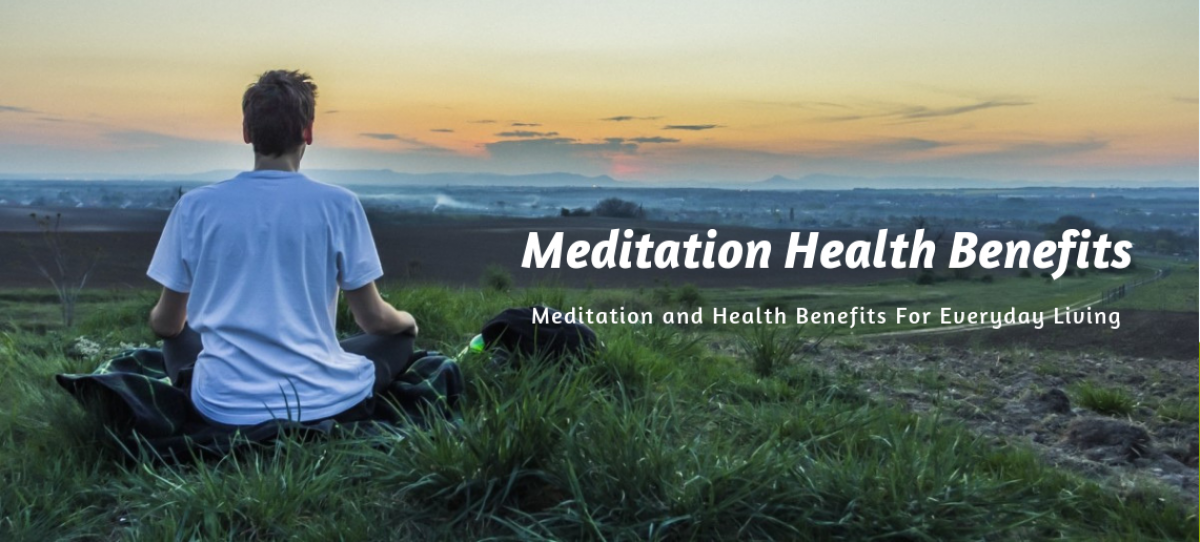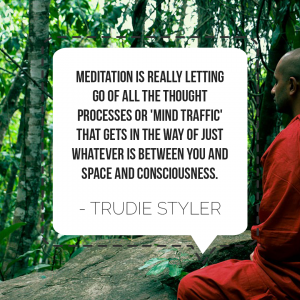The practice of meditating provides us with so many positive benefits. There is a very large body of work demonstrating the power meditation has to fight illness, anxiety, and stress as well as help us take a step back from our busy lives.
Besides all that, just the time spent meditating can be summed up as heavenly or otherworldly. When you choose to be still and simply reflect you suddenly find yourself being transformed. You’ve left your conscious self behind and now you are tapping into your sub-conscious, a much quieter and enlighted place most people never seek or find.
Picture your typical day. Sounds, demands on your time, family, work, relationships coming at you from all different directions.  It’s enough to make you run for the countryside. How can we resist these staggering forces of distress and negativity? We need to turn deep within ourselves where there is an unlimited supply of peace and guiding energy.
It’s enough to make you run for the countryside. How can we resist these staggering forces of distress and negativity? We need to turn deep within ourselves where there is an unlimited supply of peace and guiding energy.
The Industrial Revolution drove people from their quiet country lives into the big cities which, as a result, became even busier. The stresses and diseases associated with city living crept into the lives of these people. Life was complicated. How many stars could you see in the night sky from your room? Where were the birds with their happy songs? The sound of water tripping over rocks? Country life had a well thought out existence. You followed nature’s cycles, planting seeds, nurturing their growth and harvesting the bounty to provide for your family. Man felt connected to nature. Today, you don’t ever have to leave the city. All that nature provides can be found just down the block from your condo. Fast food, discount clothing stores, drive-through banking and climate controlled by thermostats and air conditioners. Our origins in nature have silently and quickly become disconnected.
Meditation, in its simplicity, takes us back to a place where we can block out the everyday stuff that overwhelms us. Meditating allows us to let go of stress, the byproduct of our chaotic lives.
You can meditate anywhere, anytime, it’s easy and convenient.  There are no costs to do it, no scary side effects and you won’t gain weight. It can, however, be very addictive but not in the same way that drugs or alcohol are addictive. After meditating you feel good about yourself and may even experience the effects of a “natural” high. It is these benefits of meditation that can lead to a more positive and healthy lifestyle.
There are no costs to do it, no scary side effects and you won’t gain weight. It can, however, be very addictive but not in the same way that drugs or alcohol are addictive. After meditating you feel good about yourself and may even experience the effects of a “natural” high. It is these benefits of meditation that can lead to a more positive and healthy lifestyle.
We all know how complicated the human body is. Heck, would-be doctors spend years and thousands of dollars trying to understand its workings. Meditation focuses on the brain which helps produce natural “drugs” many, many times more powerful than the medications being prescribed these days. When you meditate your body starts to produce hormones and chemicals giving you a rush of calm and joy. The more you reflect the more you’ll find yourself able to chill in the moment.
You may be starting your meditation journey for any number of reasons, many of them similar or different from someone else’s needs. Meditation can be a tool to increase your sports aptitude or your ability to perform at a higher level in the workplace. By removing the clutter in your mind it can help increase memory. Some people use meditation to combat grief or help them overcome some sort of trauma such as Post Traumatic Stress Disorder (PTSD). Still others meditate for inspiration and creativity. It can also shut down a racing mind providing you with a much needed deep sleep.
What is your reason for meditating? Imagine what the world would be like if everyone took a daily meditation break or two. Do your part. Practice meditation. You’ll feel better for it.


 In 500 BC, he was able to reach enlightenment using meditative techniques. His prominence in this space led him to be a recognized figure across Asia before finally finding a following in the Western world.
In 500 BC, he was able to reach enlightenment using meditative techniques. His prominence in this space led him to be a recognized figure across Asia before finally finding a following in the Western world.